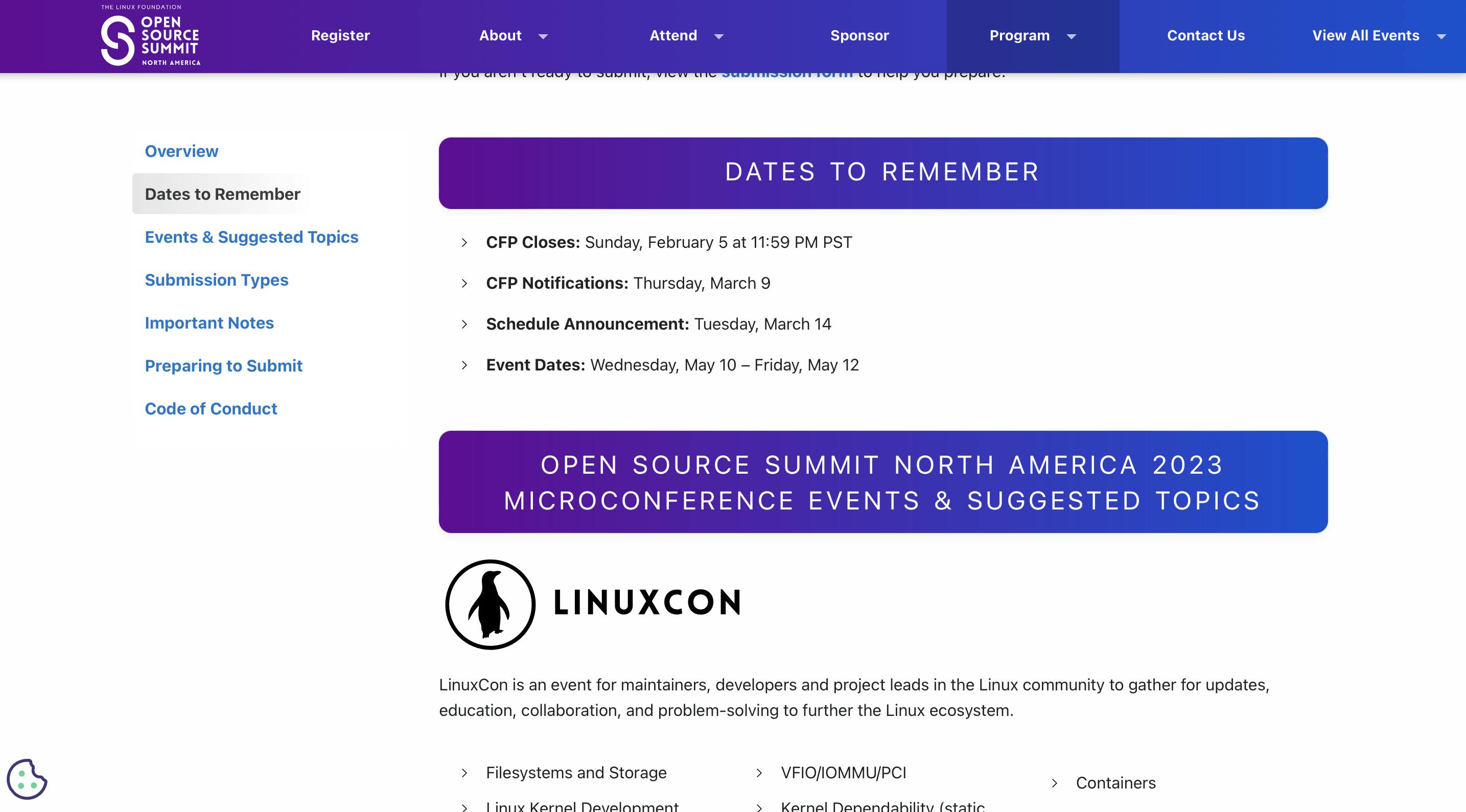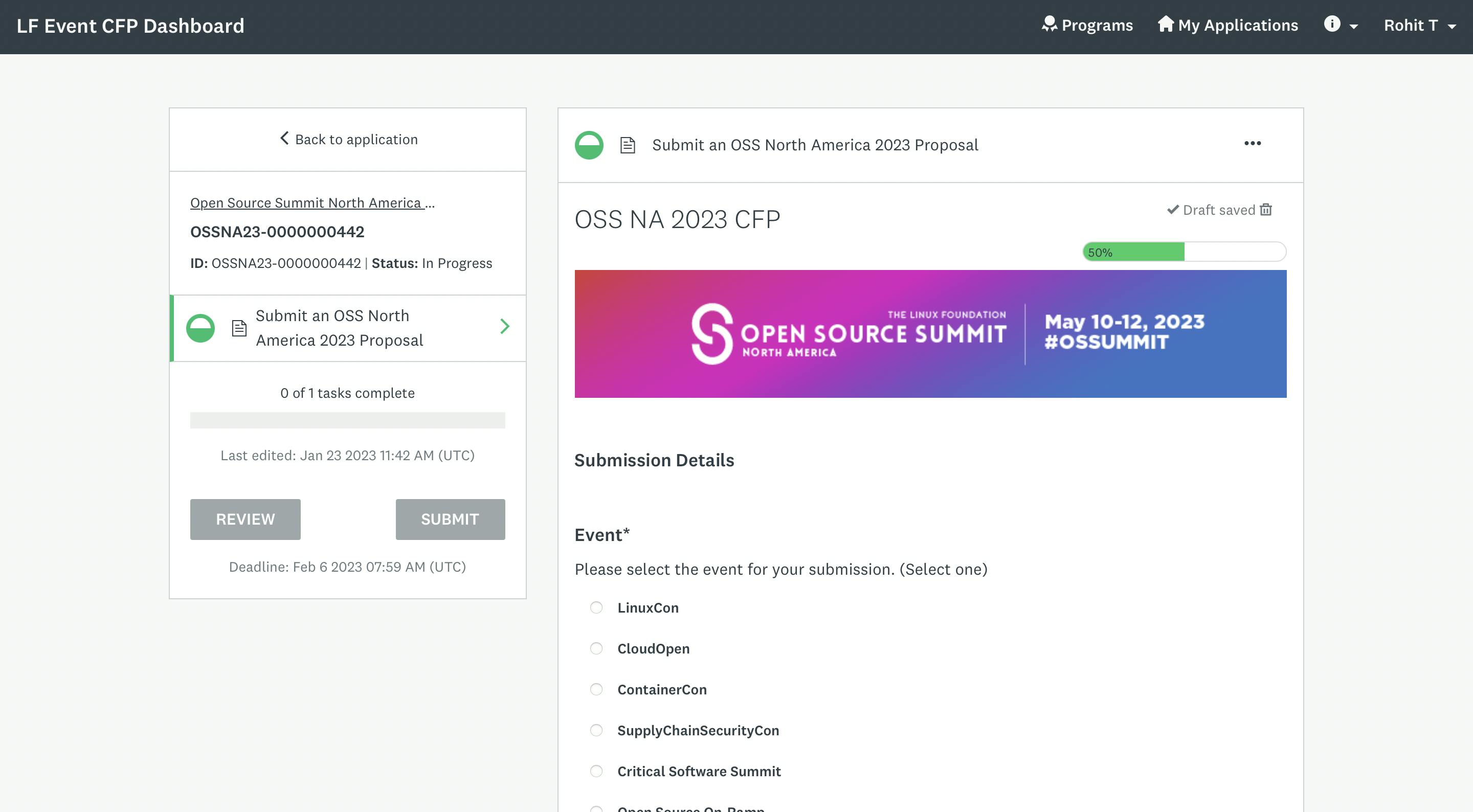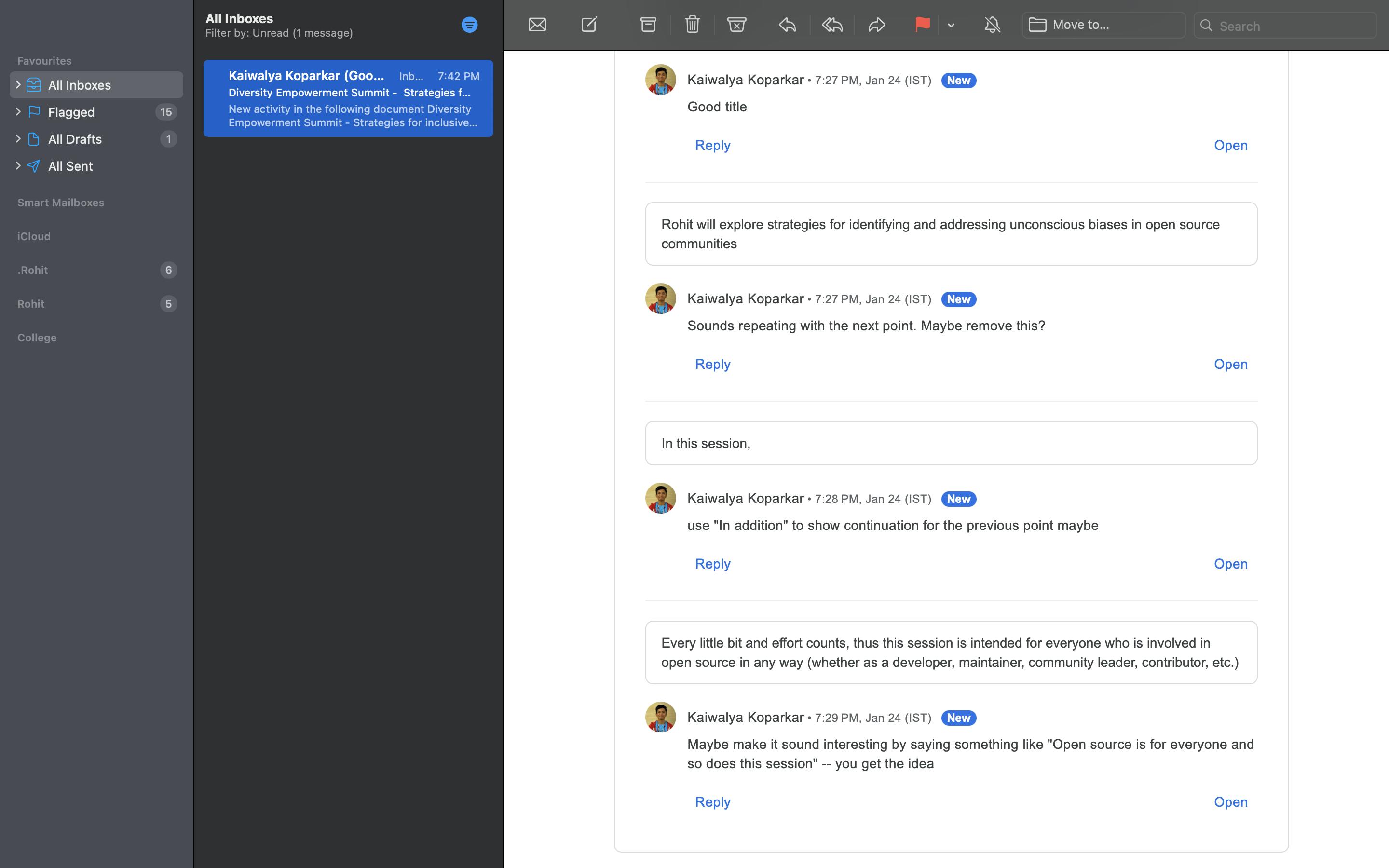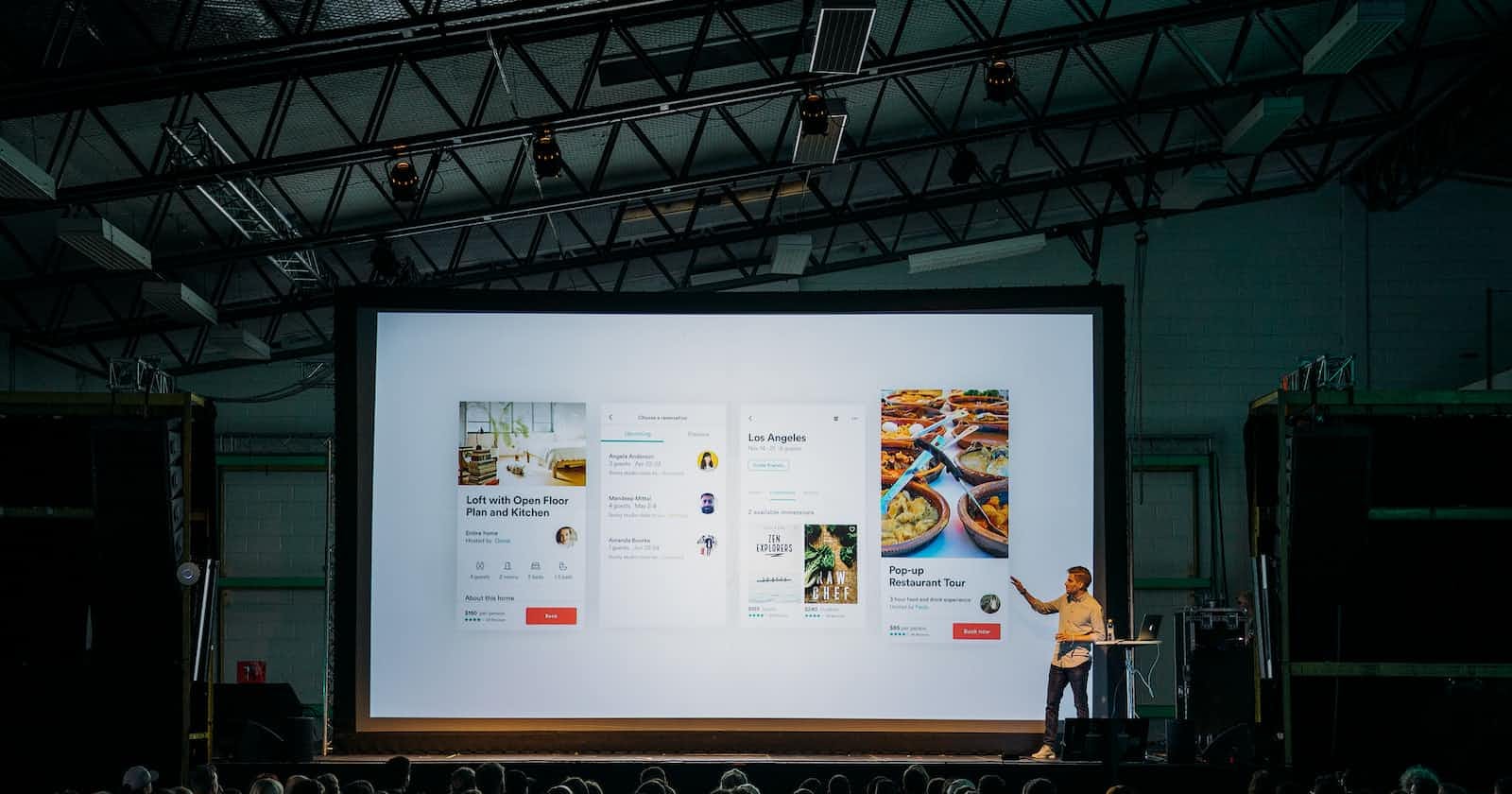
Photo by Teemu Paananen on Unsplash
Navigating the CFP Process: A Beginner's Guide to Drafting and Submitting Your First Proposal
Table of contents
Hello everyone! If you are here, you either have little experience submitting CFPs or are a complete novice who wants to learn more about this procedure. I believe that both groups of people will benefit from reading this blog as I am gonna walk you through my experience of writing my first-ever CFP and best practices. So let's begin. I will entail the topic with my personal story of writing my first CFP so you can easily understand and better yet, replicate it for yourself.
What is a CFP in the first place?
A CFP stands for "Call for Proposals" or "Call for Paper". As the name suggests these are public calls/announcements made by the organizers of the event/conference to review and accept different talk ideas by interested people.
The concept of a CFP is quite simple and straightforward. The announcements for CFPs are made and a timeline is given between which interested people can submit their talk ideas to the conference/events. CFPs consist of different elements such as a Speaker Bio where you write about yourself in brief, brief about your topic and an abstract of your talk which depicts what your topic is about and what can the attendees gain from it.
You basically pitch the idea of your talk to the organizers. Upon selection, you are notified and invited to give your talk at the particular event/conference.
Now let's get to how I drafted my first CFP. But before that, How do you find events and conferences?
How do you find events and Conferences?
I was in grey just as any beginner or newbie can be. I had zero knowledge as to where I can find events, and conferences or keep track of deadlines for CFPs. Who better to ask help from than people who have done it already? This is when I decided to leverage the tech community and take insights from people who have already done it.
I went to Twitter and asked in public what are some resources I can use to get started, How I can find events and so on. I did not ask for handholding. I needed them to point me to resources so I can learn and the community was generous to point me to some good ones.
Shoutout to my classmate/friend Ashwin Kumar Uppala for pointing me to Dr. Dawn Foster's talk on "Overcoming Imposter Syndrome to Become a Conference Speaker!" and taking the time to initially tell me all about CFPs and how I should not hold myself back from sending one.
Shoutout to Kaiwalya Koparkar who was kind enough to point me to a website that kept track of many conferences and made it easy for me to find events and CFP deadlines. He also pointed me to an article that he wrote to draft a perfect CFP which was insightful and very useful in my process of crafting my CFP. I highly recommend you check it out too.
Some of the resources that I am now using to keep up with events, conferences and CFPs are:
https://linkfree.eddiehub.io/events (This is Open sourced site, so you can add any events or conferences you come across too that aren't listed)
Pro tip: Have a timeline page or just any productivity page that you can use to keep track of all events you are interested in with their dates, deadlines and result.
It allows you to self-reflect and keep a track of how long you've come. Learn from rejections. Don't be hard on yourself. Rejections are part and parcel of life so take them lightly with lessons learnt and continue to do good work and keep improvising.
Do you have a doubt? Ask in public! Do you know the solution to someone's problem? Share it. Do you have the resources to learn something? Share it! Learn in public and by doing. Moving on to my journey now.
Writing my first CFP
The first thing is to choose a conference. Choosing the conference is very important. You need to choose conferences/events that align with your skills and your interests because you also need to learn and network at these events. You cannot just choose a conference for the sake of it. For example, being a Javascript developer, it is unlikely that you can leverage an app development conference, is it? These events allow you to meet like-minded people and network with individuals who are doing good work and learn from them and different tracks.
Accordingly, I chose to send my first CFP to Open Source Summit, North America'23. I went over the website to check for the deadlines and important instructions. You can usually find these details right on the Conference's website like this👇🏻

Then went through all the tracks and suggested topics to narrow down which topics align with your skill and which are the tracks that I can speak on and add value to attendees.
The more value you can add to attendees, the better it is. So, I chose two tracks and 1 or 2 suggested topics to submit my CFPs on. (But ended up submitting only one)
Quality >>>>> Quantity
Also, another question I had in my mind was whether or not we are allowed to submit more than one talk to a track or conference. The answer is YES! You can send in more than one proposal either under different tracks or the same but some conferences might have a limit of 2 per track. So please check before you proceed.
Each conference has its own set of rules, regulations and code of conduct that need to be strictly adhered to. I went through those too for a better understanding of what is expected of us. I suggest you do the same, it also gives you a gist of it.
Furthermore, Choosing topics is where I feel most of the people drop off as they think they need to be experts in the field or concerning the talk which is not entirely true. You need to know enough to provide insights and useful content to the audience who know less than you. After I chose my topics and understood what is expected of me as a speaker, I doubled down on all aspects. From researching, and learning all corners of the topic to narrowing down to what I should be addressing. That includes researching about if the talk on this topic was already addressed and if yes, How is yours different and what's your personal touch that makes it worthwhile and engaging?
When addressing an audience or anyone, you need to be all-rounded and know about it in and out. I made notes of all the points I need to address and why am I the best person to talk about them.
Following this, I went on to submit my CFP using the submission form.
👉🏻Submission Form
From what I have seen, CFPs are submitted through submission forms which have different sections that need to be filled in similar to the one below:

Read the instructions carefully for all the sections and fill in the details accordingly. Of course, the most important section of all is Abstract Title, Description followed by the Speaker bio where you as the speaker have to pitch your talk idea to the organisers. It is safe to say that you need to convey the value you add to the ecosystem in that description and compel the organisers to accept your talk.
Here are some tips I used to craft my first CFP👇🏻
Things to keep in mind as you craft your CFP
👉🏻Understanding my audience:
You need to understand one thing very clearly, the talk would be accepted and in place for the audience. You need to be audience-oriented. Meaning you have to address the talk in such a way that the audience is engaged and draws insights. You need to add value to them. Even as you write your CFP, You need to figure out how your talk will benefit the audience and write about it in detail in your description. Understanding your audience can allow you to put forth different dimensions of a talk. At the same time, you need to show in your description that you can keep the audience engaged and give them a great time.
👉🏻Why am I the best person to give this talk:
You have to utilise your bio and description to clearly demonstrate how you are a better fit to give this talk when compared to anyone else out there. Some things I considered:
Things I am really good at
Things I really have to tell
Experiences and examples I can leverage to engage the audience
It's not about the quantity but the quality
👉🏻Taking references
If a conference took place previously, there is a good chance the previous conference's titles, descriptions and recordings of the talks are available online. So I took time to search for previous OSS events and look at the titles and descriptions

I read through different titles and descriptions to get a gist. I referred to them so I can frame my description better or take inspiration.
I recommend you do the same, you also learn a lot in the process.
🚩Do not pitch
Your talk will get rejected if the organisers feel like you are promoting a product or service. It is equivalent to marketing and clearly against the rules for pretty much all conferences or events. People don't like it.
👉🏻Taking feedbacks
After I wrote down my title and abstract for the talk. One last step I took before submitting it was to reach out to one of my friends who previously spoke at this conference and ask him for his opinion and feedback. He was kind enough to give it a read and provide me with the required feedback.

I also reached out to Kaiwalya Koparkar to take his feedback and he was kind enough to take time and speak to me and provide insights that helped me better craft my CFP as you can see here👇🏻

I feel taking feedback before submission allows us to evaluate the talk and further work on it and iterate. The more we iterate, the better the talk gets. Feedback helps us identify weak points and get a better sense of writing. After taking feedback, I made the suggested changes and added some final touches.
Conclusion
And with that, after working through it all, I drafted my first-ever CFP and submitted it today. I plan on continuing to submit more CFPs and add more value to both my audience and open-source communities as a contributor. This article has everything about how I went from being a novice to where I am now. With resources and tips I used which you can too. I hope it helps in your journey too.
For more such content and technical writing, follow Rohit T. You can also catch me on my socials here. Thank you for reading. All the best as you craft your CFPs.🚀
